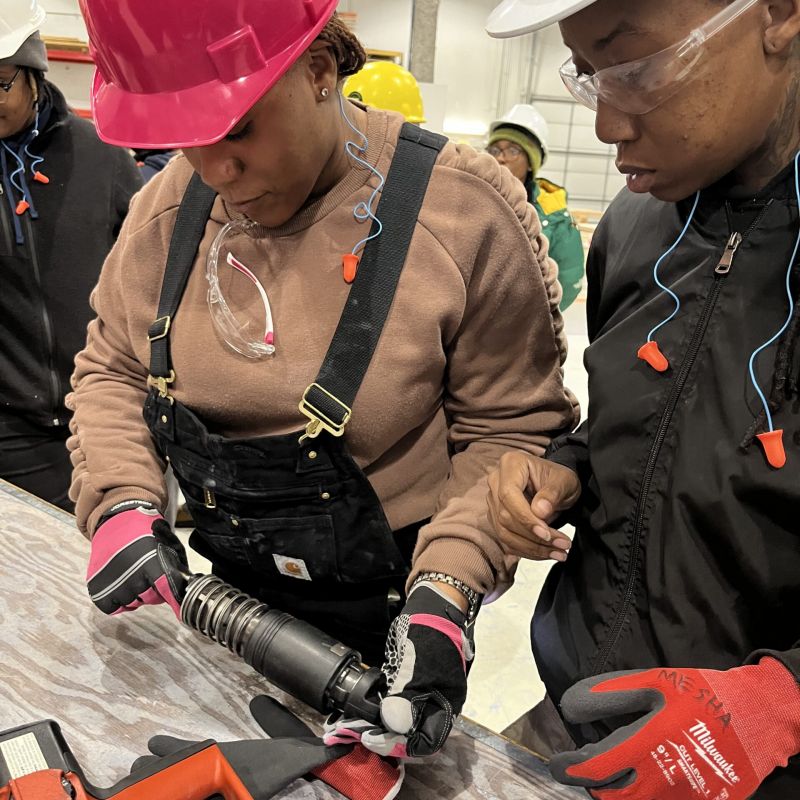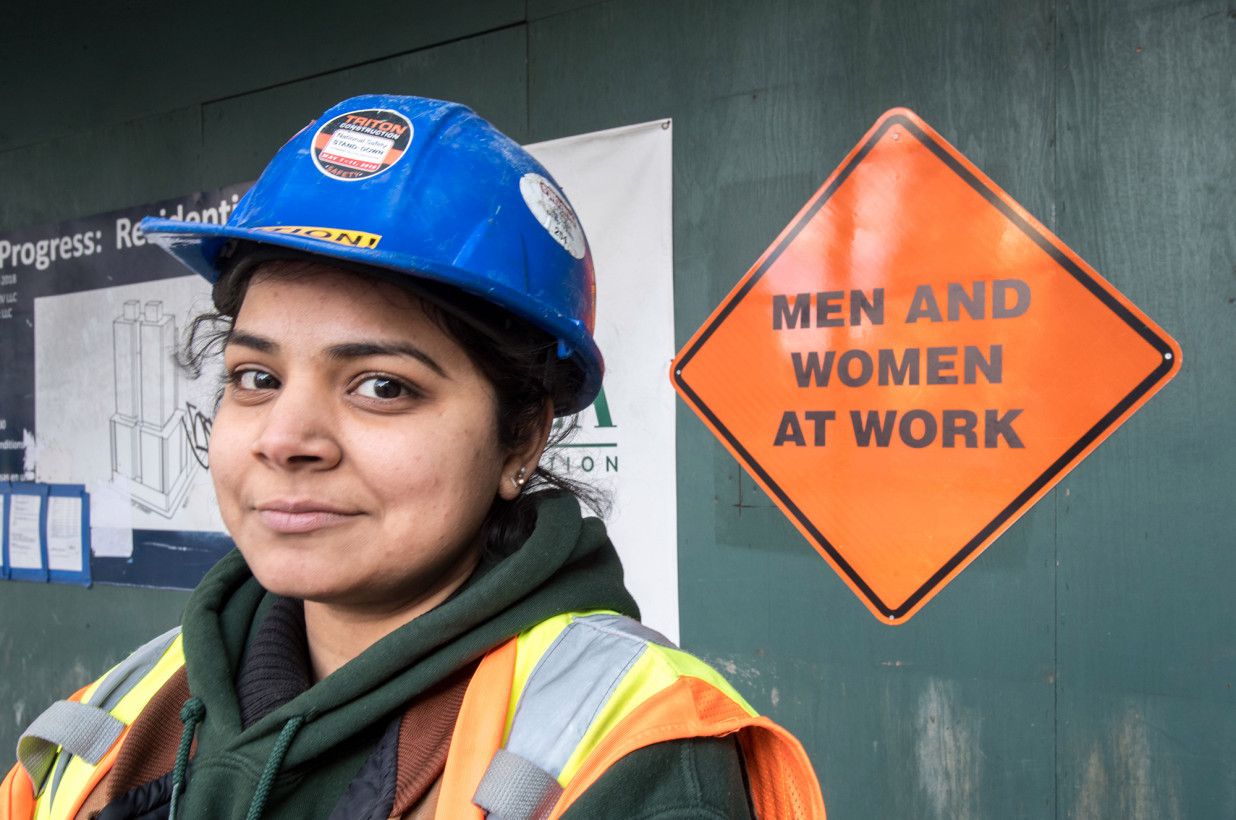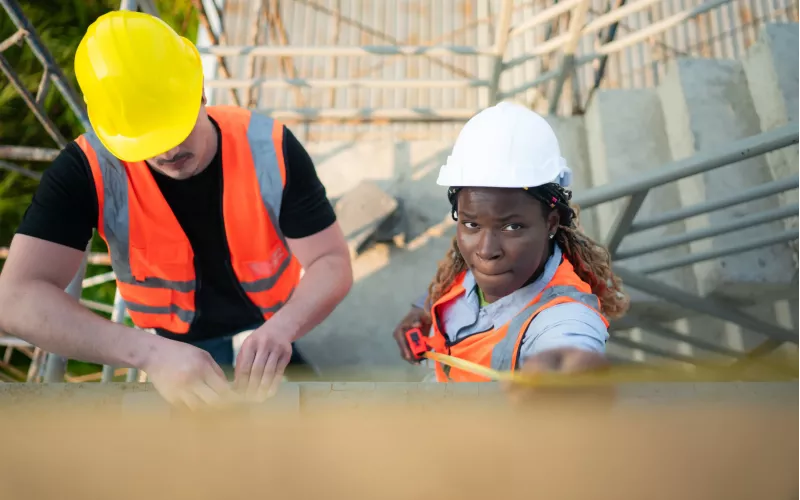Equity Resource Center
Chicago Women in Trades offers guidance and practical support to industry stakeholders nationwide through its Equity Resource Center to help increase the number of women entering and remaining in skilled trades.

What We Do
We offer intensive customized technical assistance and online resources for industry stakeholders, with an aim to:
- Increase the number of women in apprenticeships and skilled trades jobs in construction, manufacturing, transit, and utilities industries.
- Establish and plan hiring goals for women to create a strong workforce.
- Meet federal, state, and local anti-discrimination requirements.
- Increase leadership development opportunities for tradeswomen and build the capacity of current and emerging tradeswomen’s groups.
Who We Support
We help people who want to improve their outreach, recruitment, assessment, training, and retention practices to support women in the skilled trades:
- Pre-apprenticeship programs
- Registered apprenticeship programs
- Unions
- Job training programs
- Contractors/subcontractors
- Employers
- Workforce development boards
- Emerging tradeswomen’s groups
- Local/state/federal agencies
- Career and technical education program developers
Technical Assistance
Technical assistance (TA) can help industry stakeholders build their workforce capacity and offer targeted guidance, training, and resources. We help industry stakeholders strengthen their ability to conduct outreach, recruitment, assessment, training, and retention of women in the skilled trades.

How Can We Help?
If you are interested in consulting services or looking for a resource, contact us.

Why it matters
Why it matters
Women currently represent only 3.9% of women in the skilled construction trades.
This data shows that resource sharing, training, strong policies and practices, and accountability measures are needed to ensure that not only women but all workers in the skilled trades can thrive in safe and respectful work environments. By addressing systemic barriers, fostering sustainable workforce practices, and implementing effective strategies, CWIT’s Equity Resource Center seeks to help industry stakeholders create long-lasting opportunities for women in skilled trades.

Latinas have a 1-in-100 chance of working with another Latina.
Black women have less than a 1-in-100 chance of working with another Black woman in the trades.
Of 2,635 tradeswomen surveyed in 2021, 47.7% reported that they are held to a different standard than their male co-workers, face discrimination in many aspects of their work, and sometimes contend with an unsupportive, if not hostile, work environment.
In that same study, among parents with children under 18 who seriously considered leaving the trades, more than 2/3 or 69.3% mentioned difficulties finding childcare, and almost as many, 63.4%, mentioned lack of pregnancy accommodations.
A 2022 study conducted by IWPR, that explores the experiences of women working in non-management roles in the manufacturing industry, stated that the reason rated as most important for women wanting to leave the industry is harassment and disrespect, indicated as very important by 4/10 of those with intentions to leave the industry or 40.1%.
In this same study, only 10.6% stated that they never experienced any form of discrimination or harassment during the last five years.
In this same study, 60.3% of Black respondents say that they have seriously considered leaving the industry; 47% of White respondents say that they have seriously considered leaving the industry; 40.9% of Latinas say that they have seriously considered leaving the industry.


